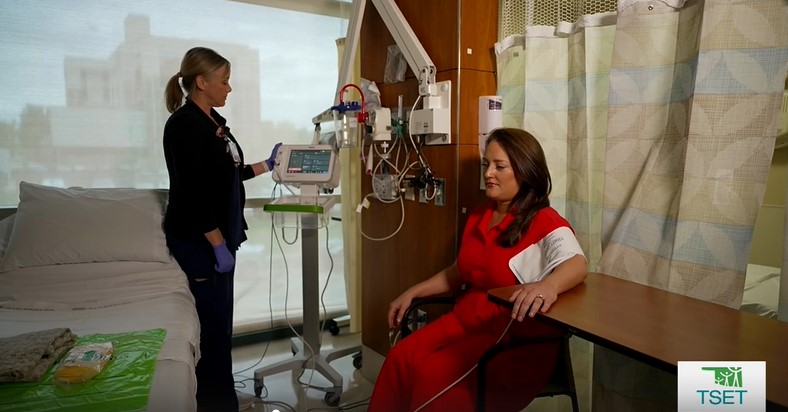It’s called “the silent killer” for a reason. Hypertension, or high blood pressure, often shows no symptoms, quietly damaging your body for years. Dr. Frank Gaffney, noninvasive cardiologist with Oklahoma Heart Institute, spoke to News on 6 to spell out exactly what you need to know about this deadly and often-overlooked condition. You can view the full story here.
Known among doctors and nurses as the “silent killer,” hypertension, or high blood pressure, doesn’t show symptoms until it’s too late.

In today’s Health Matters with TSET, Amy Slanchik learns why it’s important to keep an eye on your blood pressure.
Taking your blood pressure regularly is the only way to know if you have hypertension, because it does not come with symptoms.
“Because it’s so silent, you have to rely on measurements to catch it early,” cardiologist Dr. Frank Gaffney said.
He said people wake up with the highest blood pressure they’ll have for the day, then it trends downward. Gaffney said take your blood pressure at different points in the day, and if you notice it’s higher in the evening than the morning, it could be a sign you’re developing hypertension.
Gaffney also said it is important to relax, and rest your arm on a table so it’s even with your heart.
“Take your blood pressure the right way,” Gaffney said. “Sit in a chair, relax, breathe for five minutes, so you are relaxing.”
The American Heart Association says Stage 1 Hypertension begins in the 130 over 80 range.
Anything higher than 180 over 120 is considered a crisis.
Hypertension can lead to heart attacks, stroke, kidney issues, and even vision problems.
“The tiny little blood vessels in the retina, yes, play havoc with your vision, absolutely,” Dr. Gaffney said.
Several things can cause hypertension, but how much exercise and sleep you get can have an impact.
“We have lots of things that contribute to it, but there’s no one smoking gun,” Gaffney said. “Certainly, gaining weight, certainly, people’s genetics, family dispositions, and then elevated salt, decreased exercise, sedentary lifestyles, all of those things contribute.”
While Gaffney said most people in their 70s and 80s will have some level of hypertension, it can happen much earlier in life, too.
“I meet people who, when they were in their high school physical, they found blood pressure, and they’ve been on blood pressure medications since their 20s,” Gaffney said. “So there is a subset of people who, genetically, are predisposed to have this condition.”
But Gaffney said no matter your age, there can be successful outcomes for people who take ownership of their health.
“If you are working with your physician and you’re earnest about your diet and doing all those things, you can absolutely control your blood pressure,” Gaffney said.
Some people have what’s called “white coat hypertension.” They get nervous when they are at the doctor’s office, which increases their adrenaline and blood pressure. To combat white coat hypertension, some people take their blood pressure at home to get a more accurate reading.
For additional resources to help keep your blood pressure healthy, click here.
This story was written by News on 6’s Amy Slanchik. You can view the full video here. If you suspect you may have high blood pressure issues, call 918-592-0999 or click here learn more.

